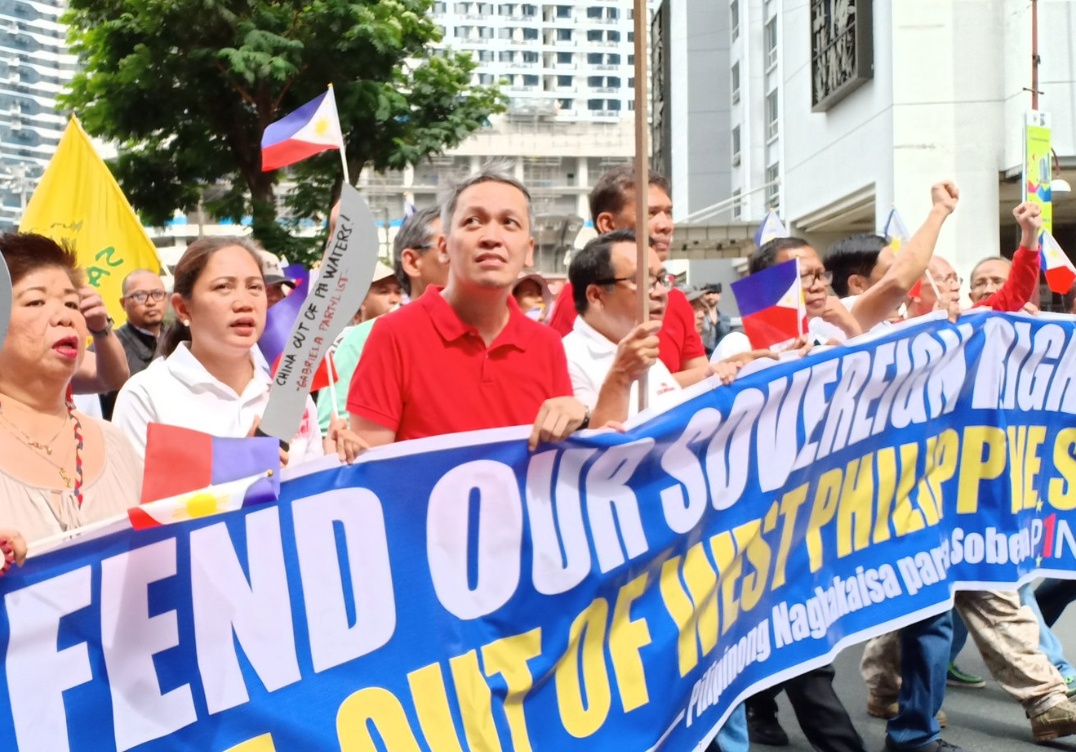There is a good reason why countries all over the world spend billions developing and maintaining military capability. It is because military force has always been and continues to remain the only real way to defend national interests. Unfortunately for the Philippines, Filipinos beg to differ. It is quite evident that Filipinos have never seen the value in projecting substantial military power. As a result, the Philippines’ military capability suffered a sustained slide to degeneracy over the half century since independence was granted by the United States in 1946.
The reality, unfortunately is that having a strong military is what gives true substance to national pride. In this sense, Filipinos’ sense of national pride is hollow at best when one considers the laughable military capability they wield.
It is one thing to possess sufficient military resources to meet defense needs within the Philippine mainlands and coastlines. Yet, following major disasters such as the 2013 calamity wrought by typhoon Haiyan in 2013, for example, the Philippine military was found to be sorely ill-equipped and unable to rapidly deploy where its services were most-needed. As usual, foreign military support saved the day for Filipinos who contributed nothing but their victimhood to efforts to manage the unfolding humanitarian crisis at the time.
It is, to add insult to inadequacy, another thing to project military power well beyond one’s mainland and onto seas one claims to be part of one’s sovereign territory. This, in essence, is what Filipinos and their “activists” are asserting noisily but without the military capability to back their talk.

To project military might over territories claimed by Filipinos across the South China Sea requires a real navy and not the donated one the Philippines has maintained for decades and certainly not one made up of little boats manned by former mutineers turned senatorial candidates in this year’s elections. But in much the same way Filipinos positioned themselves in the 2013 Haiyan disaster, an appeal to victimhood is all that underlies the Philippines’ call for global attention to what’s going on in the South China Sea.
But, really, weak countries like the Philippines continue to exist only because powerful countries allow them to. A world order supposedly ruled by “international law” is no more than a glossy pretense. No less than the United States itself has, time and again, demonstrated that its own national interests trump United Nations “resolutions” any day. Military might is the only real currency in international “relations”.
For its part, the only reason China is not moving faster and more menacingly than it already is in the South China Sea is because it is wisely considering the possibility of military action by countries like the United States, Japan, and Australia that pose real threats to its goals. The Philippines’ efforts at “diplomacy” is really no more than a quaint side show.

It is therefore interesting that much of the noise being generated around the “issue” of Chinese incursion into the Philippines’ “assets” in the South China Sea is coming from “activists” who had made names for themselves demonising the Filipino Soldier and anything to do with anything military for that matter. One wonders what sort of outcome these commies and Yellowtards are expecting following the pickets they mount before the Chinese embassy. Do they really expect China to be moved by these little soirees?

Perhaps Filipino “activists” need to spend a bit more time getting better acquainted with their “enemies”. Indeed, as University of the Philippines chancellor Michael Tan observes, China is doing its own homework…
China is watching the Philippines. I’ve seen Chinese books — not translations but original work by Chinese scholars — on various topics about the Philippines, all the way up to our Catholic churches’ architecture. And once, during a visit to China, I watched a television documentary with the most amazing details about the Japanese military and the Philippines . . . not dating to World War II but about the current situation in the West Philippine Sea.
Perhaps, rather than merely keep doing the same thing over and over again and expecting different results, Filipinos should take this as an example and learn about who and what it is exactly they are dealing with.

No comments:
Post a Comment